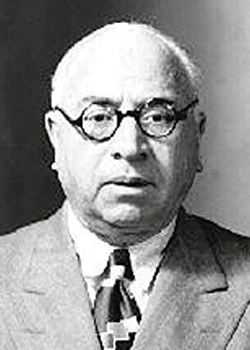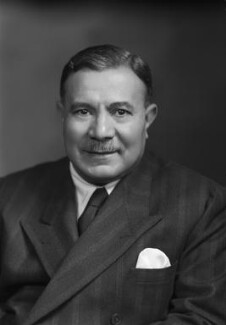
The Hungarian Workers' Party is a communist party in Hungary led by Gyula Thürmer. Established after the fall of the communist Hungarian People's Republic, the party has yet to win a seat in the Hungarian parliament. Until May 2009, it was a member of the Party of the European Left. It was formed from, and considers itself the successor to, the former ruling Hungarian Socialist Workers' Party. Despite having run in every parliamentary election since 1990, the party has never won seats.

Parliamentary elections were held in Iran on 18 February 2000, with a second round on 5 May. The result was a solid victory for 2nd of Khordad Front and its allies, the reformist supporters of President Mohammad Khatami.

Parliamentary elections were held in Russia on 12 December 1993. They were the first parliamentary elections in post-Soviet Russia and the only time to the Federation Council, with future members appointed by provincial legislatures and governors.

Parliamentary elections were held in Ghana on 29 December 1992, the first since 1979. Voter turnout was just 28.1% amidst a boycott by opposition parties, who had claimed the preceding presidential elections in November – won by former military ruler Jerry Rawlings with 58% of the vote – were fraudulent, with international observers considering them not to have been conducted in a free and fair manner.
Parliamentary elections were held in Iran on 15 April 1984, with a second round on 17 May. The majority of seats were won by independents, whilst the Islamic Republican Party was the only party to win seats. Voter turnout was 65.1% in the first round.

Parliamentary elections were held in Iraq on 15 June 1948 to elect the members of the Chamber of Deputies. The majority of seats were won by independents.
Parliamentary elections were held in Iraq on 17 January 1953 to elect the members of the Chamber of Deputies. The result was a victory for the Constitutional Union Party, which won 67 of the 135 seats. Only 57 seats were contested.
Parliamentary elections were held in Iraq on 9 June 1954, although they were delayed until 14 June in some areas due to social upheaval. The Constitutional Union Party remained the largest party in the Chamber of Deputies, winning 50 of the 135 seats, although 53 were won by independents. Despite the government creating obstacles for opposition candidates, they were described as "undoubtedly the freest elections in Iraqi history" in 2001.
Early parliamentary elections were held in Iraq on 12 September 1954, after the Chamber of Deputies elected in June was dissolved by the King on 3 August. The Constitutional Union Party remained the largest party, winning 94 of the 135 seats, although only 25 seats were actually contested.
Parliamentary elections were held in Iraq on 20 June 1980, the first since 1958. The elections were contested by around 860 candidates and saw the Ba'ath Party win 187 of the 250 seats. Voter turnout was approximately 80%.
Parliamentary elections were held in Iraq on 1 April 1989, having originally been scheduled for 31 August 1988, but postponed due to the Iran–Iraq War. The elections were contested by 921 candidates, and saw the Ba'ath Party win 207 of the 250 seats.
Parliamentary elections were held in Iraq on 24 March 1996. The elections were contested by 689 candidates, although 30 MPs were appointed to represent Iraqi Kurdistan. The result was a victory for the Ba'ath Party, which won 161 of the 250 seats. Voter turnout was reported to be 93.5%.
Parliamentary elections were held in Iraq on 27 March 2000. The elections were contested by 522 candidates, including 25 women. Whilst there were a number of candidates, all independent candidates were nominally loyal to the Ba'ath Party, and the rest of the candidates were party members.
Parliamentary elections were held in Iraq on 5 May 1958 to elect the members of the Chamber of Deputies. It was the last election in monarchical Iraq. Most political parties had been dissolved in 1954. The main opposition coalition, the National Union Front, decided to boycott the elections. Candidates supportive of the government won 140 of the 145 seats, whilst independent candidates won the remaining five. The new parliament lasted two months only. On 14 July the monarchical government was overthrown in a military coup, and another election the same year would institute Abd al-Karim Qasim as president of the new Iraqi Republic.

General elections were held in Kuwait on 20 October 1992. A total of 275 candidates contested the election, which saw independents win the largest number of seats, and candidates opposed to the government win a total of 31 seats. Voter turnout was 83.2%.

Sayyid Salih Jabr was an Iraqi statesman who served as Prime Minister of Iraq from March 1947 to January 1948. Jabr was the first Shi'i Muslim to become the prime minister of his country and throughout his career held several offices around the country such as the office of minister of justice, education, foreign affairs, interior, and finance.
Parliamentary elections were held in Iraq on 4 August 1935 to elect the members of the Chamber of Deputies.
Parliamentary elections were held in Iraq on 18 December 1937 to elect the members of Chamber of Deputies.
Parliamentary elections were held in Iraq between 20 August and 5 October 1943. The election of the secondary voters was carried out between 20 and 31 August 1943, whilst the election of the members of Chamber of Deputies was held on 5 October 1943.
Parliamentary elections were held in Iraq between 21 November 1946 and 10 March 1947 to elect the members of the Chamber of Deputies.








